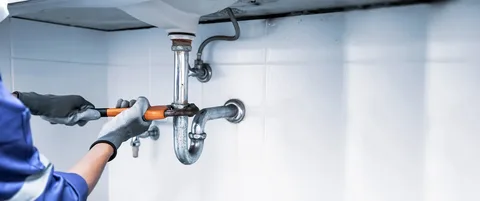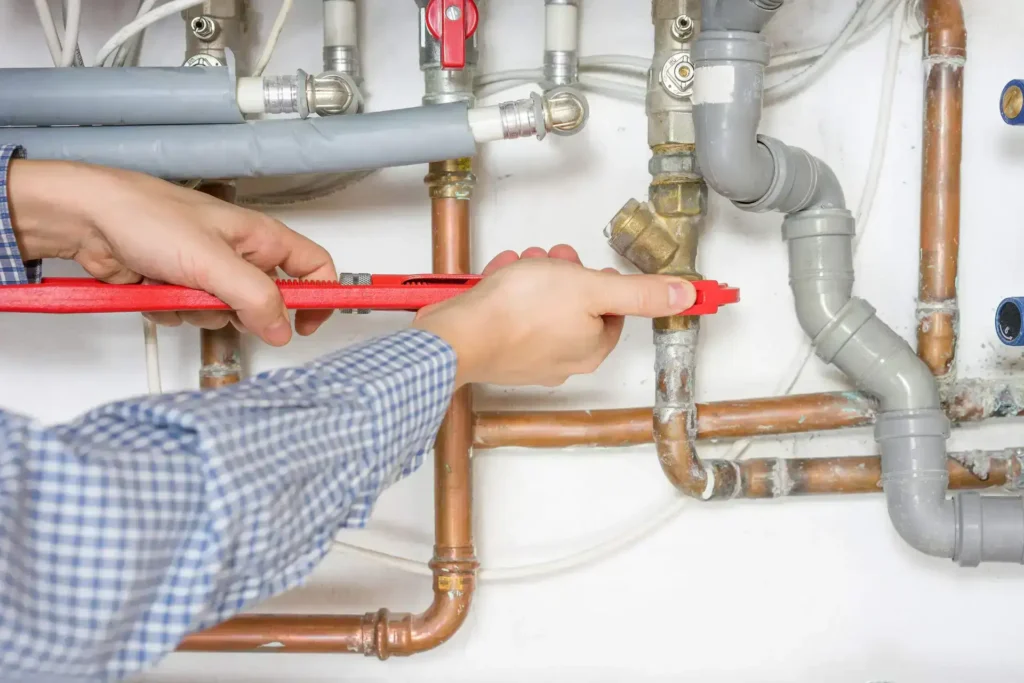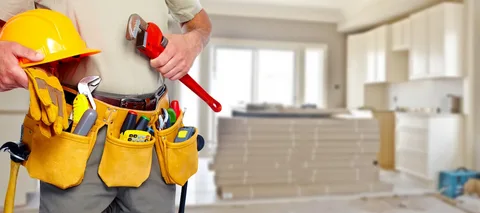Plumbing maintenance involves repairing or refurbishing pipes, faucets, and drains in a house that requires plumbing repair. This service ensures that everything operates efficiently. Additionally, regular maintenance services can help save money over time, not just for businesses but also for homeowners.
A small leak or clog can quickly turn into a huge problem. Regular check-ups will put an end to it. Learn which clever hacks will keep your pipeline line in good condition.
These 8 easy-to-do proven tips help keep your system safe and work efficiently. This plumbing maintenance would not cost expensive repair and prevents interruption in flowing water.
The 8 Plumbing Maintenance Tips that will save you money

Plumbing can get big-time quick, turning a small leak into big-time costly repairs. After leaks and clogged drains, preventive maintenance is usually the best solution. With this in mind, here are eight simple plumbing tips to ensure you save money in the long run.
1. Know What Can and Can’t Go Down Your Drains
Clogged drains are one of the most common plumbing issues, mainly due to the improper disposal of waste. Do not flush things like coffee grounds, oils, eggshells, or expandable foods such as rice and pasta. Such materials can cause very serious blockages, leading to expensive repairs. Dispose of such items properly in the trash or compost bin for clear pipes and no costly drain cleaning.
2. Get Your Plumber to Fix Leaks Straight Away
Leaky faucets, toilets, and showerheads may be a small inconvenience, but they can waste up to 150 liters of water every day. This is leading to higher costs for water bills. It also increases the risk of structural damage from water, growing mold, or wood rot, which are indeed costly to repair. Immediate leak repair, therefore, can save water while reducing the possible damage and higher costs of the extensive repairs themselves.
3. Locate Your Water Shut-off Valve Before an Issue Occurs
The search for where the water shut-off valve is would save you most of the cost that may come from water damage in case of an emergency plumbing crisis. One can easily close off the supply of water; hence, it prevents floods from happening and walls, floors, and belongings are not damaged. Know the valve location in your house before it happens to immediately act on emergencies and, hence, reduce costs of repair.
4. Clean Your Shower Drain Regularly
Hair, soap scum, and debris will clog your shower drains over time, resulting in slow draining and even blockages. Cleaning out hair and other debris from your drain often will keep it clean and avoid expensive clogs. A little prevention is the best medicine when avoiding costly plumber visits for simple blockages.
5. Keep a Plunger on the Hand
A plunger can be the most important thing a house may possess. For instance, with a sink, toilet, or drain, you might get away from minor clogs just by plunging. Having one on hand means you can take care of small plumbing issues yourself instead of requiring a plumber; however, if that cannot work, a professional will enable you to avoid further damage and repairs.
6. Inspect Your Hot Water Units Regularly
Your water heater is part of your plumbing system, and regular checkups can ensure that it runs efficiently. Check the pipes for proper insulation, monitor water temperatures, and ensure the relief valve is working. If your heater is old or inefficient, replacing it can save you money on energy bills and prevent expensive breakdowns.
7. Regular Maintenance of Heating and Cooling Systems
Heating and cooling systems require routine maintenance to run smoothly. The more extreme the weather conditions, the more your systems work overtime, and this calls for regular servicing. Annual servicing of your heating and cooling systems can detect small issues early on, ensuring efficiency and saving you a lot of money in energy bills and costly repairs.
8. Ask Certified Technicians to Install Your Heating System
A new heating system can be considered a DIY project, but the best way to get it done is by hiring a professional plumber. Certified technicians have the experience and tools to do the job safely and efficiently. Proper installation by a professional will avoid costly mistakes, ensure energy efficiency, and minimize future repairs.
Additional Plumbing Maintenance Tips
To further optimize your plumbing maintenance routine, try the following:
- Check Water Pressure: Employ a pressure gauge to check that it is under control and does not exceed 40-60 psi. If the pressure is too high, your pipes and fixtures can be under a strain that may lead to them breaking down.
- Clean Your Faucets and Showerheads: The sediment can cause the aerators to become clogged and slow down the water flow. Let them lie in vinegar overnight to loosen the gunk up.
- Inspect Outdoor Plumbing: Your outdoor taps, hoses, and irrigation systems can also suffer from leaks or get damaged over time.
The Importance of Plumbing
Applying the said methods of plumbing is not just to steer clear of the costs of costly repairs, but also to ensure that:
- Water Conservation: Leaks should be fixed, and the way to save the most crucial resource is to avoid using the faucet at home.
- Costs Saved: A properly maintained plumbing system means you are less likely to be without utilities for use when the need arises.
- Home Comfort: Plumbing that is working means keeping the tap water on, and you get the temperature that you require, hence you can live in pleasure.
Conclusion
When you follow these tips for plumbing maintenance, you will be able to solve minor problems, save money, and maintain your system well all the time. The plumbing system of your home can be looked after without having to put in any effort or spending time. From scheduling leak checks regularly to insulating pipes from freezing, just a little bit of knowledge can go a long way.
If you are further like finding out expert advice and tips to maintain your house check our online blog, be always ahead of potential problems. Keep in mind that regular upkeep is the magic formula to a successful plumbing system without glitches!
FAQS
Q1) What is plumbing maintenance?
Plumbing maintenance is taking care of your pipes, faucets, and drains. It prevents problems such as leaks and clogs.
Q2) Why should I insulate my pipes?
Insulating pipes prevents them from freezing. It also reduces moisture and helps prevent mold growth in your home.
Q3) How do leak detectors work?
A water leak detector actually detects leakages of water in plumbing systems and gives you an alert. It can send an alert to your phone helping to fix the problem fast.
Q4) What is a water hammer arrestor?
A water hammer arrestor quiets unpleasant banging noises in your pipes. It prevents pressure surges from damaging your plumbing.
Q5) Why should I install a water softener?
A water softener removes minerals from hard water. It improves water quality and safeguards your pipes from being harmed.


